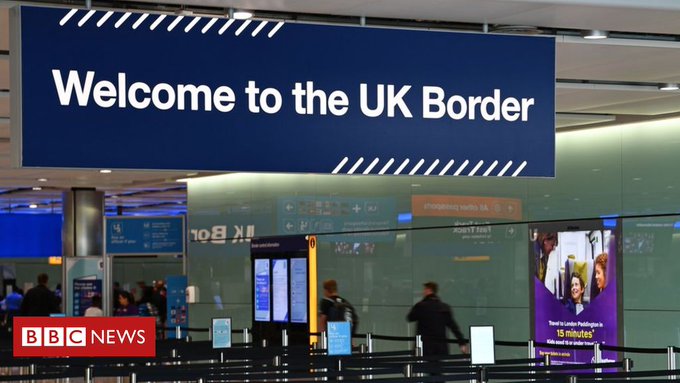As the government continues to define its post-Brexit immigration rules, a report has recommended lowering the wage threshold for migrant workers. Up until now, the threshold was at £30’000, but experts have stressed that reducing it to £25’600 could boost the British economy. The limits apply to migrant workers who come to the UK with a job offer.
Industry sectors relying on low-salary workers could face staff shortages in post-Brexit Britain if the threshold remains as it is now. While curbing immigration through this higher threshold may lessen the pressure on public services, including the NHS, overall UK economic growth could suffer.
Independent report to help shape Britain’s immigration policy
Changing its immigration rules has long been on the UK government’s agenda. Back in 2018, the then Prime Minister, Theresa May, announced her government was reviewing its immigration policy. In 2019, Sajid Javid, the then Home Secretary, asked the Migrant Advisory Committee (MAC) to work with businesses on setting a migrant worker wage threshold. The report published yesterday outlines the findings and recommendations resulting from the MAC’s work.
According to the report, reducing the salary threshold to just over £25’000 would allow qualified medical staff and teachers to take staffing pressures off the public sector. The report also labelled Boris Johnson’s ‘point-system based immigration rules’ an election campaign ‘soundbite’. MAC Chair, Professor Alan Manning said it was still unclear what such a system would look like.
After the publication of the MAC report, the Home Secretary, Priti Patel, reiterated the government’s intention to overhaul the UK immigration system:
“I think it’s important to recognise that the British public voted for change when it comes to immigration and with that, they have voted for an Australian-style points-based system.”
Government expected to introduce Australian-style points system
The UK already has a point system in place for non-EU citizens. After the transition period, EU workers will no longer be able to live and work in the UK without a visa. The government is currently looking at the point-systems in operation in countries such as Australia and New Zealand.
The UK system for non-EU citizens awards points based on English language skills, salary, and company sponsorship. In future, points may be awarded for specific skills to meet the needs of the UK economy. This would make the UK’s future point system similar to those in use in Australia, New Zealand, and Canada.
Low pay migrant workers will find it tougher to get permission to live and work in the UK




